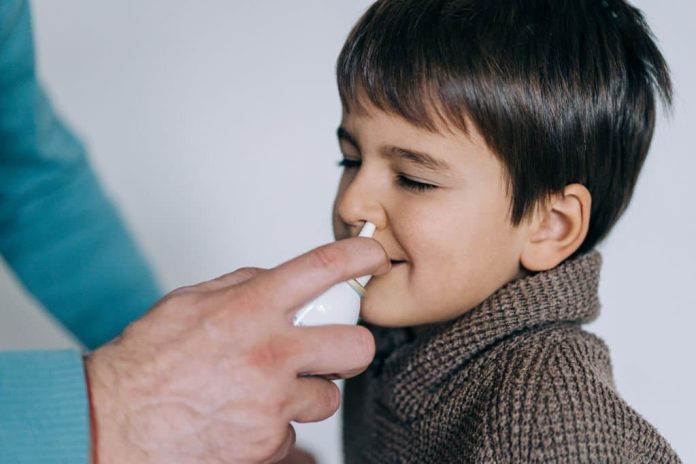According to doctors, up to 60% of the total number of people with drug addiction are young people aged 16-30. Many teenagers are especially hooked. Therefore, it is very important for parents to notice their child’s destructive passion in time and react correctly.
In fact, anyone can become a drug addict. Regardless of social status, family relationships, it is a mistake to think that you can never be affected. It is very important to be able to notice the characteristic symptoms in the child’s behavior and find help quickly.
In a case you know for sure that your child takes drugs, google “suboxone clinic near me” and get a quick help or consultation. Usually, rehabs have free hotlines or can offer you a consultation with a doctor. Some of them are state-funded, so money doesn’t have to be an issue.
Table of Contents
Why children are addicted to drugs
There may be many reasons for a teenager to become familiar with illicit substances. Among the main ones that most often lead children to drugs are:
- self-doubt and low self-esteem;
- interest;
- desire to experience new sensations.
What about parents who have learned about their child’s destructive passion? First of all, accept the problem, although it is not easy. However, you need to understand the seriousness of the situation in order to respond properly and help your child.
Prohibition of drugs, bidding (offering a reward for giving up drugs) or even the threat of punishment, in this case, are not helpful. The craving for illicit substances is stronger than the fear of violating the instructions of parents and outweighs the desire to own something offered in return. Moreover, such a reaction of the father and mother can cause aggression in adolescents, they will close up and reaching their consciousness will be difficult.
It is important for adults to clearly understand that in a state of dependence, teen becomes psychologically unbalanced, unable to analyze their actions and draw conclusions. They may even commit a crime against his relatives. Of course, for parents, the news of their teen’s addiction comes as a shock. The first reaction may be fear, tears, and even accusations of the child of pernicious passion. But this will not help, as well as attempts to overcome the problem alone. The main task of parents is to provide support and persuade the child to receive treatment.
Symptoms of addiction
The first sign that something is wrong with your child is exposing him or her to a lie, especially if it has never happened before. Also, the teenager begins to avoid talking in any way, becomes secretive, often disappears on the street. The disappearance of things from the house, money from the wallet – this is another reason to sound the alarm.
Understanding exactly that the teen is a drug addict will help and some indirect signs:
- speech retardation;
- pupils do not respond to light;
- atypical pallor of the skin;
- heart rhythm problems;
- disorientation;
- loss of appetite;
- sudden attacks of aggression;
- inadequacy or depression;
- untidiness;
- abrupt weight loss.
The teen may also make new friends that he does not want to talk about. It is also worth exploring the teenager’s perteenal belongings.
How parents should behave
The first step to saving the teen of a drug addict is to acknowledge the problem and choose measures to help. In no case should you spend money and waste time turning to various healers and magicians, or preparing any tinctures. Unconventional methods and self-medication will not work, as well as good attitude or persuasion. The problem can be overcome only with the help of specialists.
Therefore, for the treatment to give the optimal effect, you need to go to special suboxone clinics near me, which will provide professional help. You need to select an institution according to the following criteria:
- rehabilitation program;
- time spent on overcoming the problem;
- qualification of suboxone doctors near me;
- conditions for patients;
- cost.
It is necessary to address in a concrete clinic only on the condition that it completely suits parents, causes trust. Otherwise, you need to look for the next institution.
What to do if teen does not want to be treated
Adolescents’ refusal to help is not uncommon. According to statistics, only one in ten addicts recognizes the problem and is ready for treatment. What to do if the teen is not included in this number? Parents need to tactfully communicate to them the need for suboxone treatment near me. To do this correctly, we recommend that you listen to a number of tips:
Do not force your child to go to the clinic. Such behavior can lead to a depressed state of the child, so there will be additional psychological problems.
You can’t give money to buy the next dose to relieve the suffering of breakage.
It is not necessary to scold the teen, to apply measures of psychological violence. When talking to a teen drug addict, you should remain confident and calm.
You should try to explain to the child the seriousness of the problem and the consequences.
Intervention can also be a solution in such a situation. This term hides the motivational conversation of a drug addict with people he trusts, and a psychologist also takes part in the conversation. In most cases, the teenager agrees to treatment. In conclusion, a private conversation takes place between him and the psychologist, during which the specialist consolidates the motivation to overcome the passion.
Stages of treatment in the clinic
When seeking help in suboxone clinics near me for an addict, look for an individual program to get rid of the addictive passion. It includes the following stages:
- Motivation. A psychologist works with the patient, and adjusts them to the need for treatment.
- Laboratory tests to detect comorbidities. For example, it can be venereal or blood diseases, etc.
- Diagnosis and treatment plan.
- Detoxification. This stage is aimed at cleansing the body and removing toxic substances.
- Rehabilitation. The course is aimed at eliminating the desire to take the next dose.
- Resocialization. This measure is aimed at restoring the patient’s interaction with the environment.




